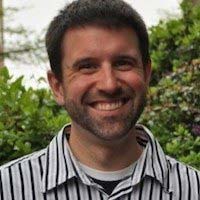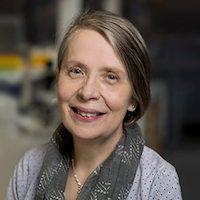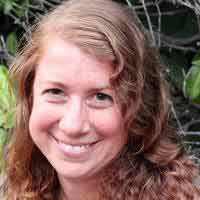When you click on a sponsoring school or program advertised on our site, or fill out a form to request information from a sponsoring school, we may earn a commission. View our advertising disclosure for more details.
Biotechnology is a growing field that addresses urgent healthcare and environmental problems with innovative solutions from the intersection of biology, chemistry, engineering, and technology. Biotech professionals work in a variety of industry sectors including medicine, agriculture, the environment, and defense.
Subfields of biotechnology include pharmaceuticals and medical devices, genetics and genomics, research and clinical trials, and others. In response to the need for professionals to fill the growing demand in these diverse industries, educators with expertise in the application of the principles of biotechnology are also in high demand.
Certificates in biotechnology education are available for secondary science teachers, curriculum and instructional leaders, and post-secondary educators seeking to deepen and expand their knowledge of the field and effective pedagogic techniques. Such programs enable educators to reflect on their teaching approaches and develop new methods for bringing bioscience to the classroom to prepare the next generation of biotechnology professionals.
Teachers and instructional coaches with biotech education certificates may be eligible for increases in salary and promotions within their current positions. Such individuals may also become professional development consultants and curriculum writers or developers with their new credential and specialized expertise in the teaching and learning of biotechnology. Licensed educators may also want to support students in experiential, entrepreneurial projects that incorporate biotechnology or launch their own biotech startup companies.
The following guide details four certificate programs in biotechnology and biotech education, and several distinguished biotech faculty members.
Professors to Know in Online Biotech Education Certificate Programs

Dr. Jared Auclair serves as the director of the biotechnology professional science master’s degree program, as well as the biopharmaceutical analytical sciences certificate program at Northeastern University. He’s been instrumental in creating the school’s Biopharmaceutical Analysis Training Laboratory (BATL), which collaborated with biotechnology partners, locally, nationally, and internationally.
Dr. Auclair is passionate about building top-tier courses, which pay thought to his real-world experience in the biopharmaceutical industry. He holds his PhD from the University of Massachusetts Medical School.

Dr. Obom fulfills numerous roles within the Krieger School of Arts and Sciences Advanced Academic Programs at Johns Hopkins. She is director of the Center for Biotechnology Education; the program director for the individualized genomics and health and biotechnology programs; and a lecturer within those programs.
Dr. Obom teaches courses on emerging infectious diseases, biodefense and infectious disease laboratory methods, cell culture techniques, and genes and disease. Before joining JHU, she taught bioinformatics and biology at the Catholic University of America. She has led workshops in pedagogy and is a recipient of the Martin Luther King Award for community service.
Dr. Odom completed her undergraduate degree in public health at JHU and her doctorate in biomedical science at the Icahn School of Medicine at Mount Sinai.

Dr. Rozhon is chair of the bioinformatics, biotechnology, and clinical trials design and management programs at the UCSC Silicon Valley extension school. He currently teaches virology and drug development at UCSC Extension.
His diverse career has involved work in several segments of the biopharmaceutical industry. He has worked in drug development, global pharmaceuticals, clinical research, and clinical trials management, in addition to academia.
Dr. Rozhon holds a bachelor’s degree in zoology from Butler University and a doctorate in virology, microbiology, and immunology from Indiana University–Bloomington. Notably, he completed two postdoctoral fellowships in neurovirology: one at Northwestern University and the other at the University of Alabama at Birmingham.
Featured Online Biotechnology Education Certificate Programs
The biotechnology education certificate program at JHU’s Zanvyl Krieger School of Arts and Sciences consists of five graduate-level courses that engage teaching professionals in inquiry-based approaches and the integration of technology in bioscience education.
Participants develop their own knowledge of bioscience while expanding their pedagogic skills as science educators. The program guides students in reflecting on their learning and teaching practice while analyzing recent research on bioscience education. Educators gain teaching tools and assessment strategies to engage students in bioscience-related issues and questions.
Students must take five courses to complete the program. These include the foundations of bioscience, biochemistry, molecular biology, an independent research project, and one of the following: cell culture techniques, a recombinant DNA laboratory, biodefense and infectious disease laboratory methods, or immunological techniques in biotechnology.
Admissions requirements include submitting a resumé, official transcripts, and a 500-word statement of purpose. GRE scores are not required for admission. Applicants in need of instruction in hands-on laboratory skills must attend an on-campus course.
- Location: Baltimore, MD
- Accreditation: Middle States Commission on Higher Education
- Tuition: $4,322 per course
- Program length: One year
University of California, Santa Cruz (Related Program)
UCSC offers an online certificate in biotechnology through its Silicon Valley extension school. The curriculum focuses on molecular diagnostics, molecular biology techniques used in the discovery of new drugs, the role of genetic abnormalities in disease, and quality assurance vs. quality control. Two tracks—discovery and development—allow students to specialize in either theoretical fundamentals or practical applications of biotechnology, respectively.
The program consists of seven to nine courses—four core courses and three to five electives. Core courses include the introduction to drug discovery, drug development, cell biology, and the principles of immunology, among others. Discovery track electives include the biology of cancer, human physiology in health and disease, genomics and next-generation DNA sequencing, and stem cell biology. Development track electives include drug quality fundamentals and the regulation of drugs and biologics.
Two bioscience certificates may be earned through the participation in shared electives. These include bioinformatics, clinical trials design and management, HAZWOPER (Hazardous Waste Operations and Emergency Response) and workplace safety, medical devices, and regulatory affairs.
Biotechnology certificate program participants are expected to be familiar with molecular biology, which can be satisfied by an introductory course or relevant work experience. Courses are delivered in both online and face-to-face formats.
- Location: Santa Cruz, CA
- Accreditation: Accrediting Commission for Senior Colleges and Universities of the Western Association of Schools and Colleges (WASC)
- Tuition: $6,200
- Program length: Nine to 12 months of full-time study
Western Kentucky University (Related Program)
The graduate certificate in biology at WKU is a 100 percent online, 15-credit stand-alone credential designed for professionals in need of continuing education or who are preparing for a master’s degree in biology. The program is geared toward biological science professionals and educators.
Those who plan to continue their studies through the online master’s in biology can apply all credit hours towards a master’s degree. Students will take five courses which include an introduction to graduate studies and research in biology, a biodiversity course, a biotechnology course, and six credits of restricted electives. The latter classes include behavioral ecology, cell biology, molecular genetics, and other biology graduate courses with advisor approval. While this program focuses on biology, students can customize their education through biotechnology courses such as cell biology, biochemistry, and molecular genetics.
Applicants must be bachelor’s degree holders and submit official transcripts as evidence of such. No GRE scores are required. Graduates of this program are employed as natural sciences managers, clinical research coordinators, molecular and cellular biologists, biological science teachers, and postsecondary secondary school teachers.
- Location: Bowling Green, KY
- Accreditation: Southern Association of Colleges and Schools Commission on Colleges
- Tuition: $9,105
- Program length: One year
Northeastern University (Related Program)
Northeastern’s biotechnology certificate provides a foundation for professionals without a biotechnology background. The program prepares applicants with the basic concepts and skills, laying the groundwork for future study.
Sample courses include an introduction to biotechnology, cell culture process for biopharmaceutical production, molecular cell biology for biotechnology, and protein chemistry. Northeastern is known for its experiential learning methods that integrate paid co-op opportunities, in-depth study of relevant case studies, and collaborative research projects. Students may be eligible to work in paid positions in their subject of study for three to six months. They also may have the opportunity to collaborate with faculty at a variety of research centers to gain more experience.
To apply, students must submit an online application, transcripts for all schools attended, a personal statement, two letters of recommendation, a resumé, and proof of English proficiency.
Please note that this certificate is flexible, and can be taken in a full- or part-time format, on-campus, or entirely online.
- Location: Boston, MA
- Accreditation: New England Association of Schools and Colleges (NEASC) Commission on Institutions of Higher Education (CIHE)
- Tuition: $18,000
- Program length: One year
